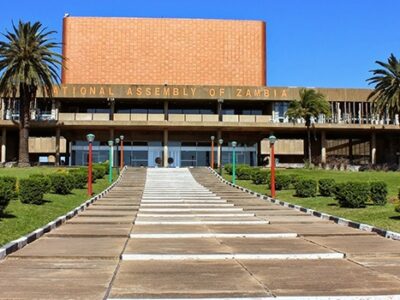In an age where digital communications underpin our societies, effective access, management and dissemination of information are more crucial than ever.
Zambia, like many other nations, is navigating the complex terrain of online information management.
Its experience reflected a broader narrative, echoing similar challenges observed globally.
Read More: Public awareness, advocacy: Facilitating free speech, by Kenneth Lutena
Over the past decade, Zambia’s digital landscape has expanded significantly.
With increased internet penetration and the proliferation of mobile devices, more Zambians rely on online platforms for news, education, business and social interactions.
However, this rapid expansion presented its own set of challenges.
Research by Gregory Gondwe in 2021 highlighted the influx of misinformation, limited digital literacy and inadequate regulatory frameworks as key issues complicating the management of online information.
Gondwe states, “Discourses on fake news, mis/disinformation have continued to occupy a broader paradigm in recent media scholarship.
In Africa, these discourses are situated within the frameworks of social media use and consumption.”
The report pointed out that there was no consensus on who should be held accountable for the negative effects of fake news.
“Studies are probably the most compelling works on fake news in Africa as a social phenomenon, rather than merely a technological one. Their studies ask the pertinent questions about who is responsible for spreading and the correction of fake news.”
These questions echo the concerns of Tandoc et al. (2017), who questioned whether fake news could exist without the consent of the consumers or audience, placing the audience in a significant position in defining the concept of fake news.
The disparity in digital literacy among different demographics further complicates the situation.
While urban populations may have better access to online resources and knowledge, rural communities often lag behind, influencing how individuals perceive and engage with online information.
Younger generations, despite being more tech-savvy, can fall prey to misinformation without critical evaluation skills.
Research by Voice of Purpose in 2023 postulates, “Digital learning is a double-edged sword for many reasons, but one of the most polarizing factors is its ability to both unite and simultaneously isolate people.
Communities around the world rely on digital platforms to connect them to the programs and communities that they need, while some struggle as an afterthought due to their lack of online presence.
The question then becomes, how can we be vigilant in our communication with each other, within and outside of the internet? What bridges can be used to cross the digital divide?”
The regulatory environment in Zambia regarding online information management is still evolving.
While the government has initiated measures to combat cybercrime and safeguard data privacy, balancing regulation with freedom of expression remains a significant challenge.
Legislation aimed at curbing misinformation can inadvertently impinge on free speech, creating a delicate balance for policymakers to navigate.
Platforms like Facebook and WhatsApp often serve as primary outlets for news dissemination.
However, their global nature complicates local regulation.
As Zambia continues to engage with these platforms, finding a middle ground that protects citizens from harmful information while preserving their rights remains critical.
In conclusion, Zambia’s experience with online information management serves as both a microcosm of global challenges and a unique testament to the nation’s efforts to navigate the digital age.
The rapid growth of digital communication has brought significant opportunities for connectivity and information sharing; however, it has also exposed stark disparities in digital literacy, leaving vulnerable populations susceptible to misinformation and disinformation.
Addressing these challenges requires a multi-faceted approach, including enhancing digital literacy across demographics, implementing effective regulatory frameworks that protect citizens without stifling free speech, and fostering community engagement to build trust in online information sources.
The evolving digital landscape necessitates ongoing dialogue about the responsibilities of both consumers and platforms in combating fake news.
As Zambians interact with global platforms like Facebook and WhatsApp, balancing the benefits of these tools with the realities of misinformation will be essential.
Ultimately, building a more informed, critical and engaged citizenry is crucial to overcoming the current challenges in online information management.
By addressing these issues collaboratively, Zambia can pave the way for a more resilient digital future, ensuring that all voices are heard and the benefits of the digital age are accessible to all its citizens.
WARNING! All rights reserved. This material, and other digital content on this website, may not be reproduced, published, broadcast, rewritten or redistributed in whole or in part without prior express permission from ZAMBIA MONITOR.













Comments